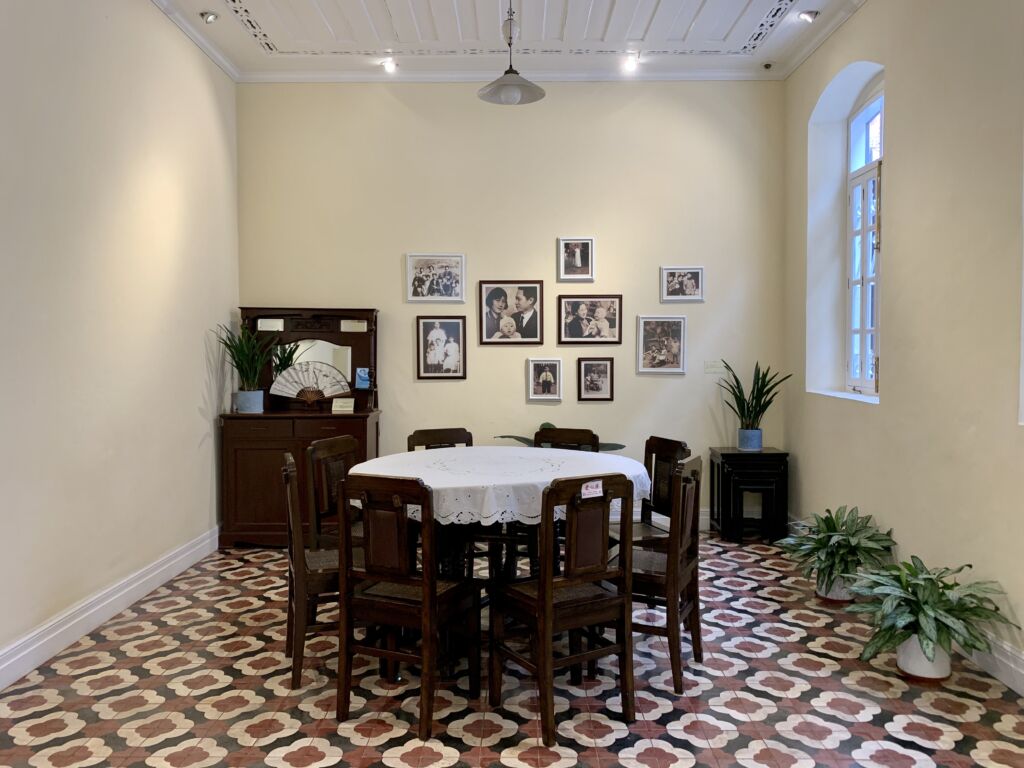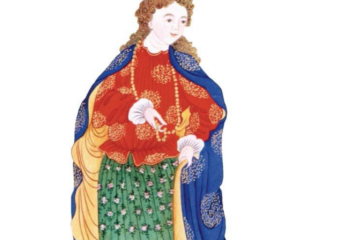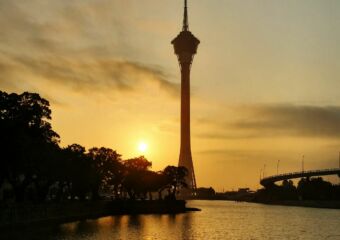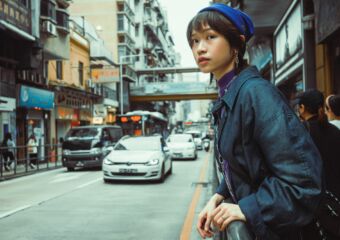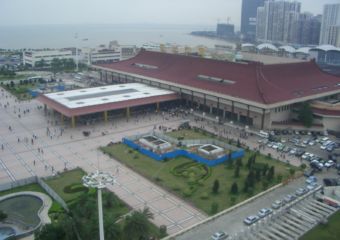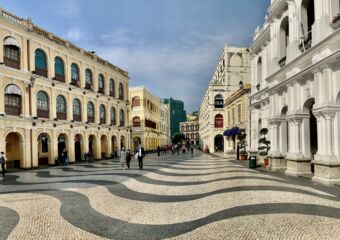You might not know this man, but if you’re interested in history and China affairs, then you’ll probably want to hear about him. Ye Ting (1896–1946) was a Chinese general who lived in Macau for a portion of his life, along with his wife and children, most of them born in the region. Situated in a central area of Macau, you can now visit his former family’s residence–revamped into a museum–located close to Tap Seac Square.
The Traditional Side of Things
Located on the intersection of Rua do Almirante Costa Cabral with Estrada de Adolfo Loureiro–reachable by walking straight for two minutes from Lou Lim Ieoc Garden‘s main entrance–this is a simple house, Western-style home with 180 square meters that stands out because of its walls painted in yellow and a spacious patio out front.
Considered a monument, it’s a classified building. When the family left, in 1942, the space started being used–in the early 1950s–by associations to hold activities related to Chinese nationalist organizations. It was then used as an office for the General Association of Chinese Students of Macau and later, a Macao Women’s General Association’s kindergarten. In 2011, the latter granted the property to the local government.
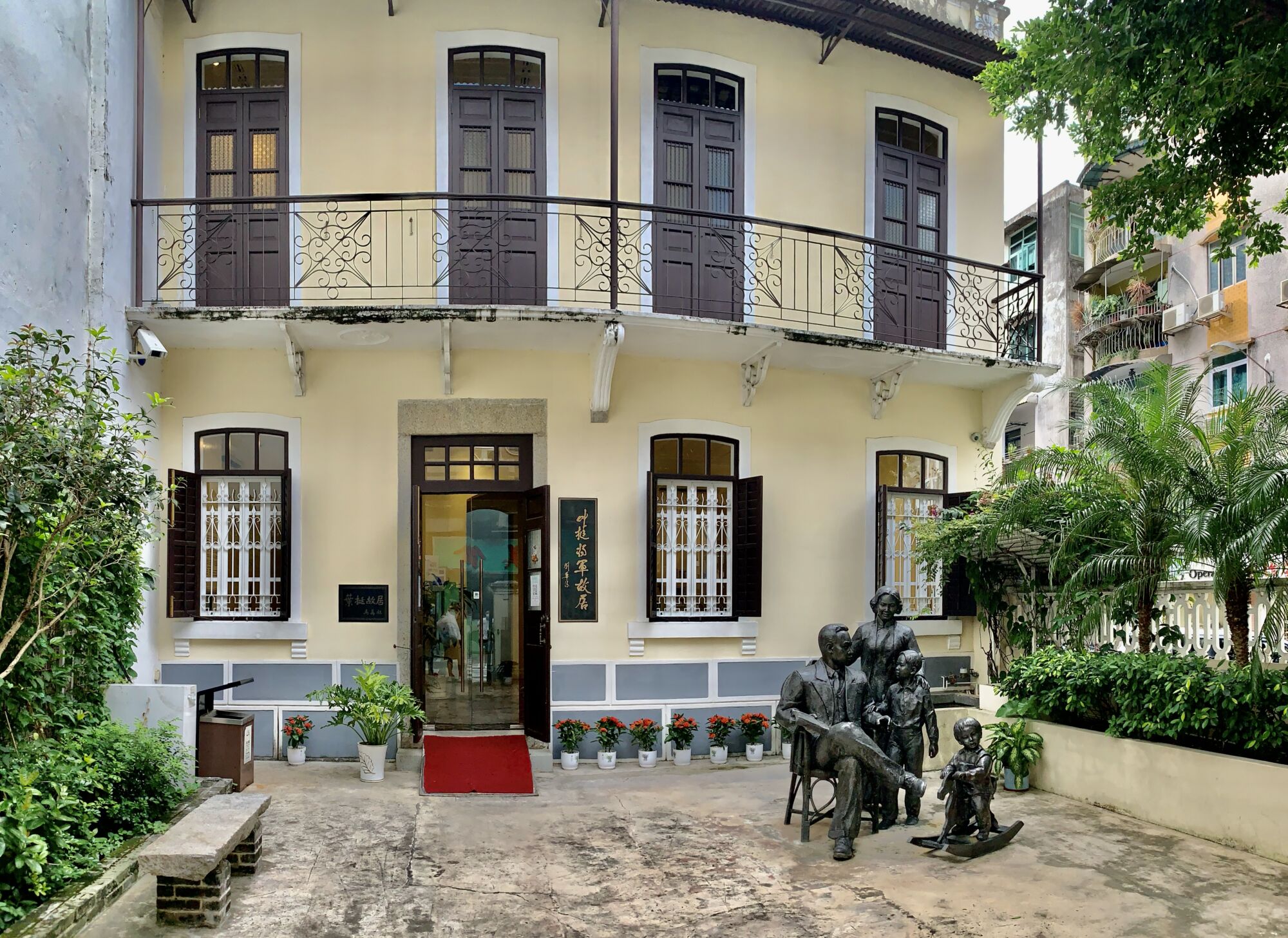
In 2006, on the occasion of the general’s 110th anniversary and 60 years past his death, the local government decided to renovate the building’s exterior and put up a plaque in his name. The house-museum opened its doors in 2014 with free admission exhibitions on the former general.
With lots of natural light, the now museum is very well preserved and you’ll feel the historic atmosphere once you step into the site. The whole place was renovated and original artifacts, objects, and furniture from that time were added. These include a big wooden closet, a pendulum clock, and a wooden bed frame, some of them donated by Ye Ting’s oldest son, Ye Zhengda.
Comprised of living and dining rooms and a working area, the former residence’s ground floor is spacious and it’s filled with information and details concerning the commander’s family life. The first floor is reachable through a set of stairs and that’s where you’ll find the bedrooms fitted with washing devices. There’s also an office up on the second floor with gorgeous vintage cameras and other accessories.
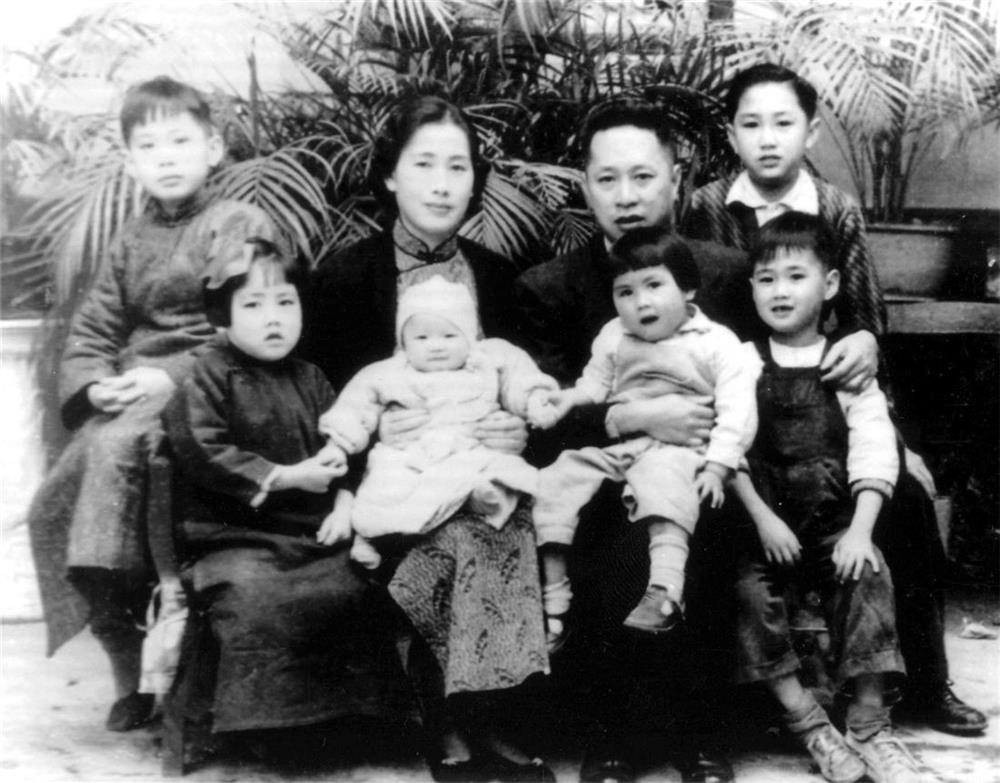
General Ye Ting, his wife, Li Xiuwen and six of their nine children. Source: Macao Streets website
The Iron General: Leading the Army into Republicanism
Ye Ting was one of the founders of China’s Peoples’ Liberation Army. However, the former general is best known for being a commander in the National Revolutionary Army, the military section of the Kuomintang. Nicknamed Xun or Xiyi, he was dubbed the “Iron General” due to his efforts and achievements during the first years of the 20th century, a historical time for the development of China as a country.
In 1924, he went to the Soviet Union to further his studies, the year he also started in the Chinese Communist Party (CCP). He also enhanced his military knowledge at the Institute of Red Professors, in Moscow.
To understand his importance in history, one needs to go back to both the 1911 Revolution and the Northern Expedition, two crucial phases in China’s past. The first is perhaps the most important moment: it marks the end of imperialism in the country, with the last emperor, Puyi (Qing Dynasty) being overthrown. Ye Ting played a vital role in this happening: he was the commander behind the battalion that broke through Wuchang.
An important date to memorize is October 10, 1911, when the Wuchang uprising took place. Puyi was only six years old when he abdicated the throne in February, 1912. This started a whole new era for China, ending the 2,000-year imperial period they’ve been under. The person behind the event is Sun Yat-sen, an equally relevant name in the history of China and with lots of references in Macau, namely streets and a house-museum. Ye Ting joined Sun Yat-sen’s Kuomintang in 1919 and in 1921 became a battalion commander for the group’s armed forces, National Revolutionary Army.
Devoted commander and father
In the meantime, he also lived in Europe for some time before returning to Asia. It was then that he started his Macau chapter. Ye Ting’s past in Macau was brief, yet worthy of keeping his memory alive in the region. The former general lived in Macau for seven years starting in 1927, after marrying his wife, Li Xiuwen, in Guangdong. It was also in this two-story high building–now a house-museum–that the couple had seven of its nine children. They moved to Macau because of the city’s safer and more stable environment, socially and economically speaking.
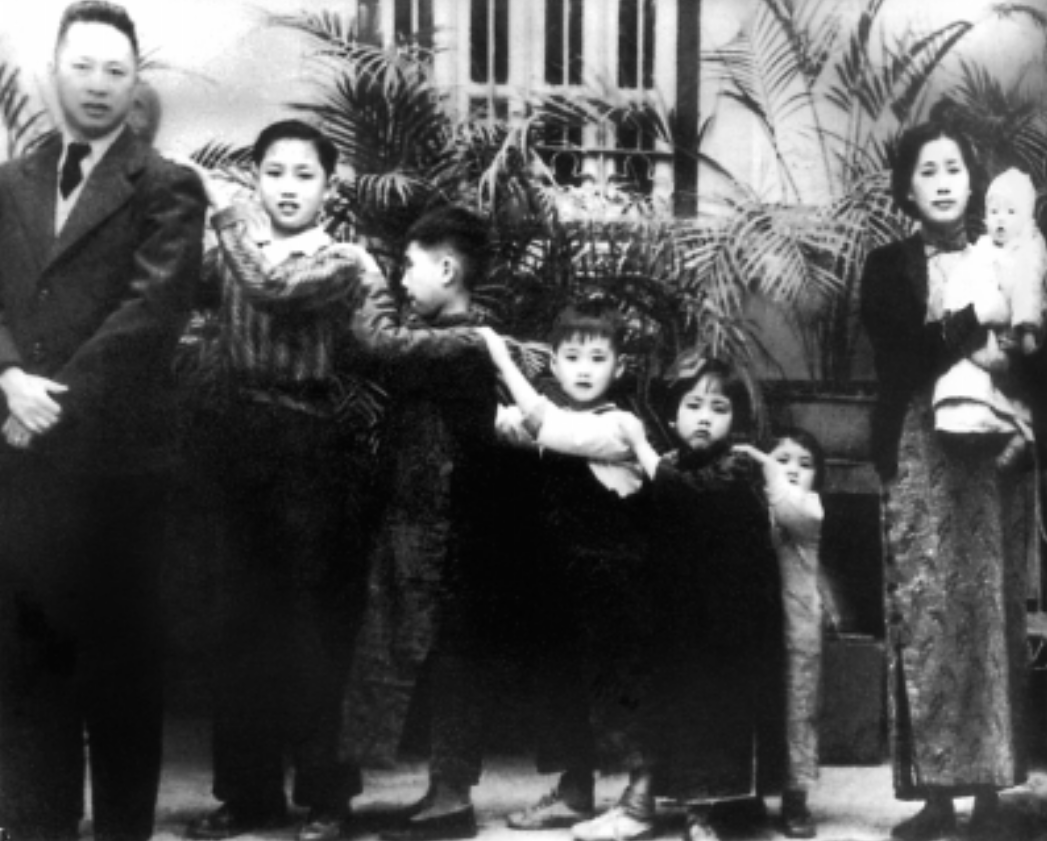
Photo taken in Macau, 1939. Ye Ting on the far left and his son, Ye Zhengda by his side. Source: Wikipedia
Between 1939 and 1941, Ye Ting commanded a unit of the National Revolutionary Army–the New Fourth Army–that was managed by the communist forces. The general ended up being detained in the aftermath of the New Fourth Army Incident, in January, 1941. Ye Ting was tried at a military tribunal and jailed for five years. Unfortunately, he died in 1946 victim of a plane crash along with his wife on the way to Yan’an, in Shaanxi, China.
Prodigal son
However, Ye Ting isn’t the only relevant name in the family: his first-born Ye Zhengda (1927–2017) became his prodigal son: having studied at a Chinese Russian-speaking school in 1947. He then furthered his studies, graduating in aircraft production from the Moscow Aviation Institute. Belonging to the CCP from a young age, his career was closely related to it. Besides being a lieutenant-general of the People’s Liberation Army Air Force, he also had an important role in China’s first aircraft designing office–Shenyang Aircraft Corporation–where he was part of the team that created the country’s first trainer jet, the Shenyang JJ-1.
Opening hours: Thursday–Tuesday, 10:00am–6:00pm
General Ye Ting’s Former Residence 76 Rua do Almirante Costa Cabral, Macau, +853 2836 6866, www.icm.gov.mo/en/YeTing

